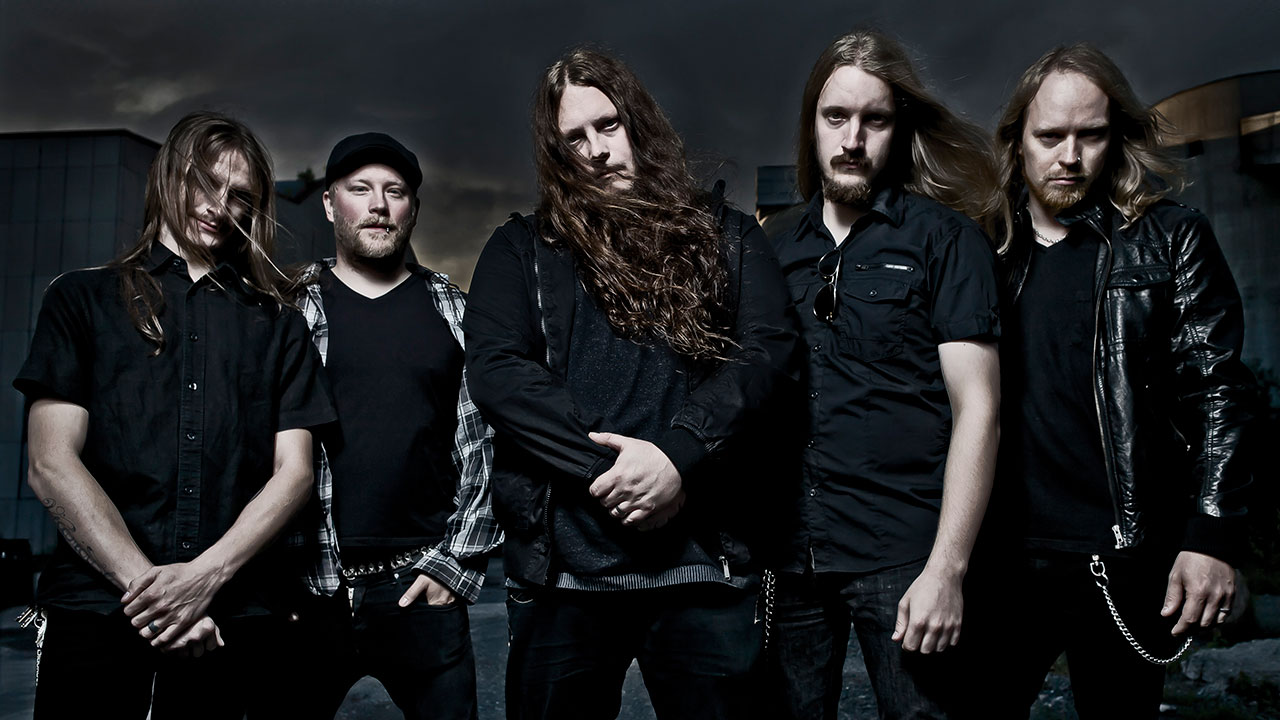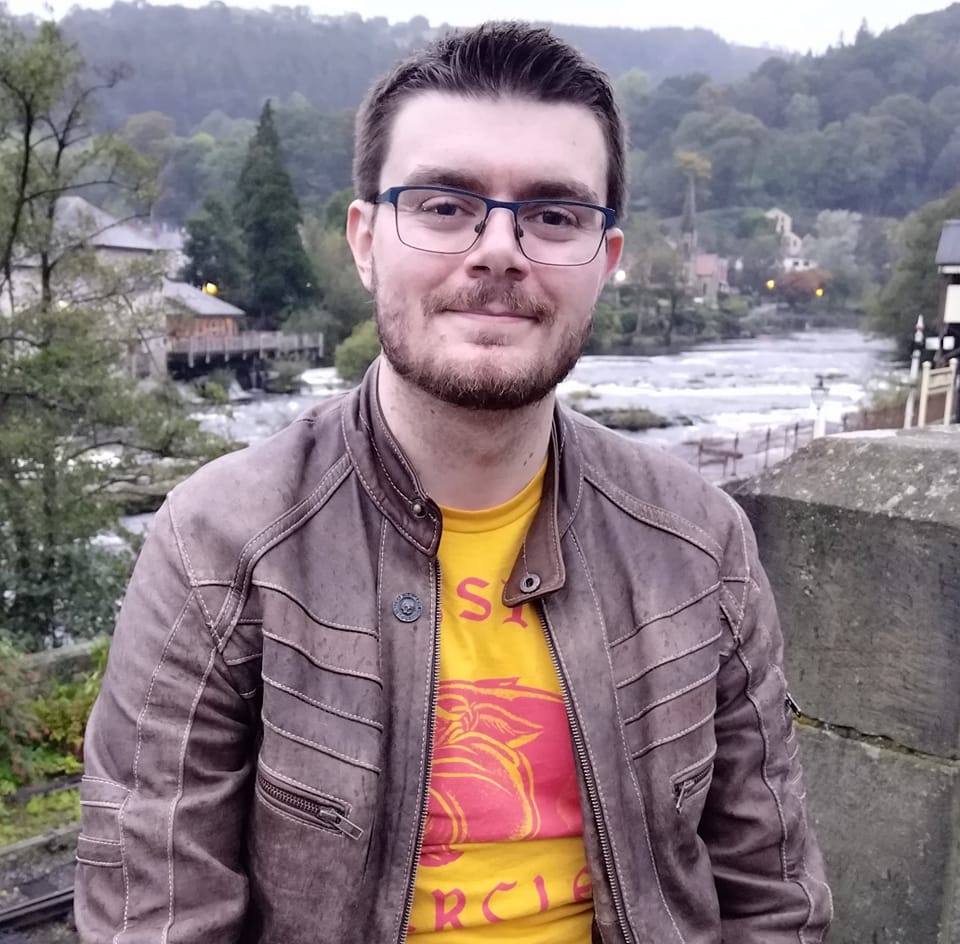Katatonia spent the 2000s climbing up the Swedish hard rock ranks. Then, after Dead End Kings, they were hailed as Scandinavia’s answer to Tool. Prog spoke to singer Jonas Renkse about lineup changes, nuclear disasters and recording underneath a halfway house shaped his band’s highest-charting album.
It’s the summer of 2012 and Jonas Renkse is stressed as fuck. The Katatonia singer and songwriter is crammed into a minuscule studio in London, about to play Dead End Kings to journalists for the very first time. What’s worse is that the band had finished the album just hours before he got on his flight to the UK.
“We had to master Dead End Kings on the evening before I left for London, or even on the same day,” the Swedish frontman remembers on a phone call with Prog. “I had to travel with the CD: the only copy so far. If it got broken on the way there, we’d have nothing to show anyone. And, on top of that, I was super nervous about people hearing our new album for the first time ever. Ten journalists came in, we’d play the album, they’d go out for snacks and ten new people would come in, and I just sat there getting more and more drunk. I was listening and trying to see on their faces if they liked it or not.”
Spoiler alert: they liked it. Not a surprise reaction, in hindsight, considering every Katatonia release before it had also been a critical darling. Early albums Dance Of December Souls and Brave Murder Day had exaggerated the growling brutality of the ’90s’ death/doom metal movement into vast prog songs. Then, in 1998, a host of new, sullen influences, as well as Renkse’s screaming technique shredding his throat, dictated a softer goth rock turn on Discouraged Ones.
From there, the Katatonia brand became all about endowing dark metal anthems with increasingly avant-garde rhythms. The 2000s heralded such mainstays as July, My Twin and Ghost Of The Sun, not to mention a lineup – Renkse, guitarists Anders Nyström and Fredrik Norrman, bassist Mattias Norrman and drummer Daniel Liljekvist – that lasted for the whole decade. Dead End Kings’ predecessor, 2009’s Night Is The New Day, even pushed the band to the then-highest chart position of their career when it reached number 39 in Sweden. Life was going pretty damn well.
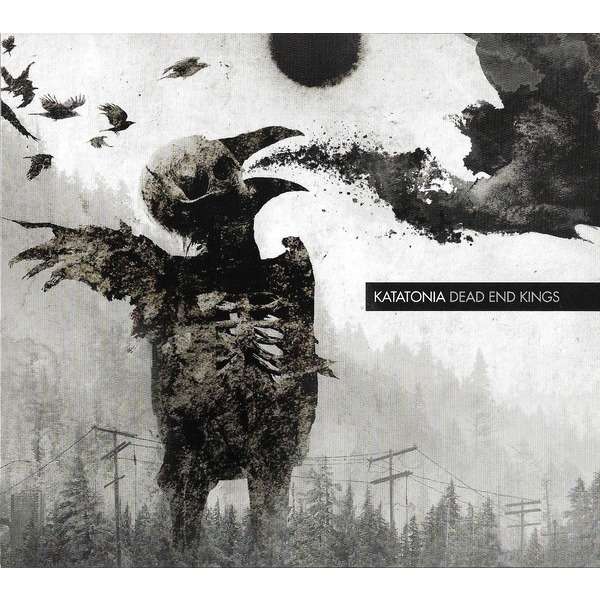
“It was a very good time,” Renkse remembers of Katatonia’s 2000s. “At the same time as Night… was released, we also started working with what is now our management, Northern Music Company. We went from being self-managed to, all of a sudden, being part of a group that gave us more gigs and opportunities to play places that we hadn’t played before.”
Despite the Norrmans’ exit in December 2009, the early 2010s maintained the band’s momentum. Their new management snagged them longer tours with the likes of Opeth and Swallow The Sun, paving the way for Dead End Kings to be Katatonia’s most successful material to date. In Sweden, it rocketed to number twelve on the album charts. Plus the reviews – including those from the journalists crammed into that studio with an increasingly inebriated Renkse – were glowing.
In Classic Rock magazine, Malcolm Dome noted that the Swedes’ prog flirtations had evolved into overtones, and compared their ninth album to the works of Porcupine Tree and Opeth: the “stealthy ambient atmosphere is obviously rooted in the visions of Steven Wilson,” he wrote. Other reviewers went so far as to label the band as Sweden’s answer to Tool.
Some may raise their eyebrows at such lofty comparisons, but there’s no denying that Dead End Kings was Katatonia’s proggiest moment when it came out. After opening song The Parting commences with Renkse’s melodic howls, it bursts into an off-kilter rock riff. Alien time signatures go on to define the entire album, from the scattering percussion underneath Hypnone’s clean guitar strums to Dead Letters’ back-and-forth between machine-gun chugs and post-rock arpeggios.
Dead End Kings also shares prog’s penchant for drama through its strings and keys, which carry over from Night… and 2006’s The Great Cold Distance. Cellos swell at the outset of The Racing Heart, before, on Ambitions, synths bubble in isolation beneath Renkse’s pleas of “Hear my thin voice.” Such touches were so significant to the album that, one year after it came out, Katatonia released Dethroned And Uncrowned: a stripped-down redo of Dead End Kings that had just the vocals, keyboards and classical instruments, as well as a handful of newly recorded acoustic guitar takes.
“At some point when we were mixing Dead End Kings, David [Costello], who recorded and mixed the album, muted all the guitars and all the drums,” Renkse explains. “We realised how much music was still going on that you wouldn’t really hear with all the metal stuff, and it was fascinating. We realised: ‘Wow, this is another album!’ We just kept talking about it after the album was released. To our ears, it sounded good enough to be made into a companion release. Dethroned… was a fun, interesting experiment.”
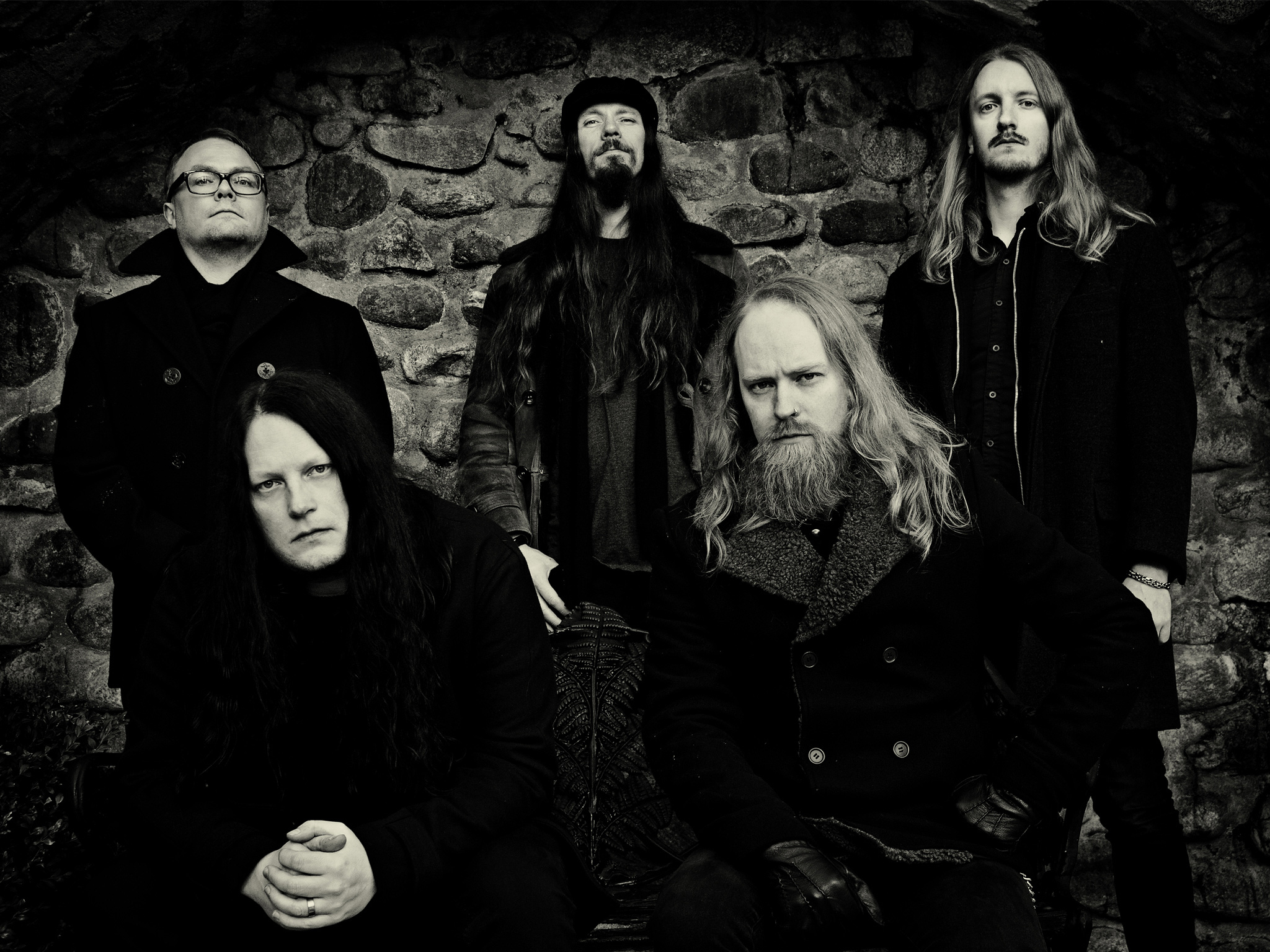
The story of Dead End Kings begins on December 22, 2009: the day that Mattias and Fredrik Norrman both announced that they were leaving Katatonia. Respectively, the brothers had put ten and fifteen years of their lives into the band when they called it quits. Renkse remembers that their joint departure “was a shock. We had a solid lineup for a long time and, all of a sudden, it wasn’t there anymore. Of course, that’ll affect you – both the band and you personally – but they did it for the right reasons. We had no fighting, no drama: just cold, hard facts.”
The singer attributes the brothers’ exit to Katatonia’s then-new management – or, more specifically, its drive to get the band more time on tour more than ever before. The statistics certainly corroborate that claim, as the year after the Norrmans left remains the band’s busiest for live shows. According to setlist.fm, Katatonia played 97 gigs in 2010.
“Fredrik and Mattias had good jobs and they didn’t want to be on the road all the time,” Renkse continues. “They both worked at the steel mill in their hometown [Avesta, Sweden]. They had boss positions, so they got decent pay, and they had kids and houses as well, so I totally understand and respect their decision. They still come to our gigs when we play Stockholm.” He laughs. “Sometimes they say they regret quitting the band.”
To replace the duo, Katatonia tapped guitarist Per Eriksson and bassist Niklas Sandin, both of whom eventually played on Dead End Kings. Renkse knew Eriksson through their death metal side-project Bloodbath, in which the player had the charming nickname of “Sodomizer”. The singer got a hold of Sandin through a mutual friend, who was in a band as well, that was bragging about how fast a learner his new bassist was. So Renkse stole him for Katatonia. “Niklas had never even been on tour at that point,” he recalls with a laugh, “but he was a super easygoing and friendly guy, so he was in. And he’s been in the band ever since.”
After a 2010 packed with concerts, Katatonia began composing what would become Dead End Kings in 2011. Notably, the writing went back to being a two-man process between Renkse and Anders Nyström, as it had been on The Great Cold Distance and every album before it. On Night Is The New Day, in contrast, the guitarist suffered some severe writer’s block and only contributed ideas to two of its eleven songs.
“He’s been up and down with that for a few years now,” Renkse reveals. “I try to write music all the time and end up throwing away a lot of garbage, but Anders needs to be inspired: he needs a certain mood for writing. When you have a family and other parts of your life that aren’t connected to music, it might take a lot of time and energy from you. He wrote more stuff on Dead End Kings though, and the album after that, [2016’s] The Fall Of Hearts.”
Like prior Katatonia albums, Dead End Kings’ lyrics tackle general emotions, such as depression, mistrust and alienation. As Renkse summarises: “I like abstract stuff.” However, some songs are more specific. The Parting, for example, was the frontman’s attempt to enter the headspace of a refugee: “I was trying to understand what it would be like to leave your home and your country. I’m a safe Swedish guy; I have no idea what it’s like.”
Meanwhile, bonus track The Act Of Darkening is about the 1986 Chernobyl nuclear disaster, and Buildings and Undo You both explore Renkse and Nyström’s hobby of visiting abandoned villages. “We went to an abandoned mine [called Stråssa Gruva],” the singer recalls. “There was a little town around it with kindergartens and grocery stores, and it was all just left to rot. I don’t know why I’m so intrigued by these places, but it’s fascinating knowing that something was once so vibrant and now it’s not.”
Renkse says he got the same vibe from the studio Katatonia recorded Dead End Kings in as he did from these derelict scenes. Unable to reuse the spot they used to track Night Is The New Day, the band holed up in the basement of a halfway house, located in what the singer diplomatically calls a “shitty neighbourhood” in Stockholm. “There was always something unnerving going on,” he reflects.
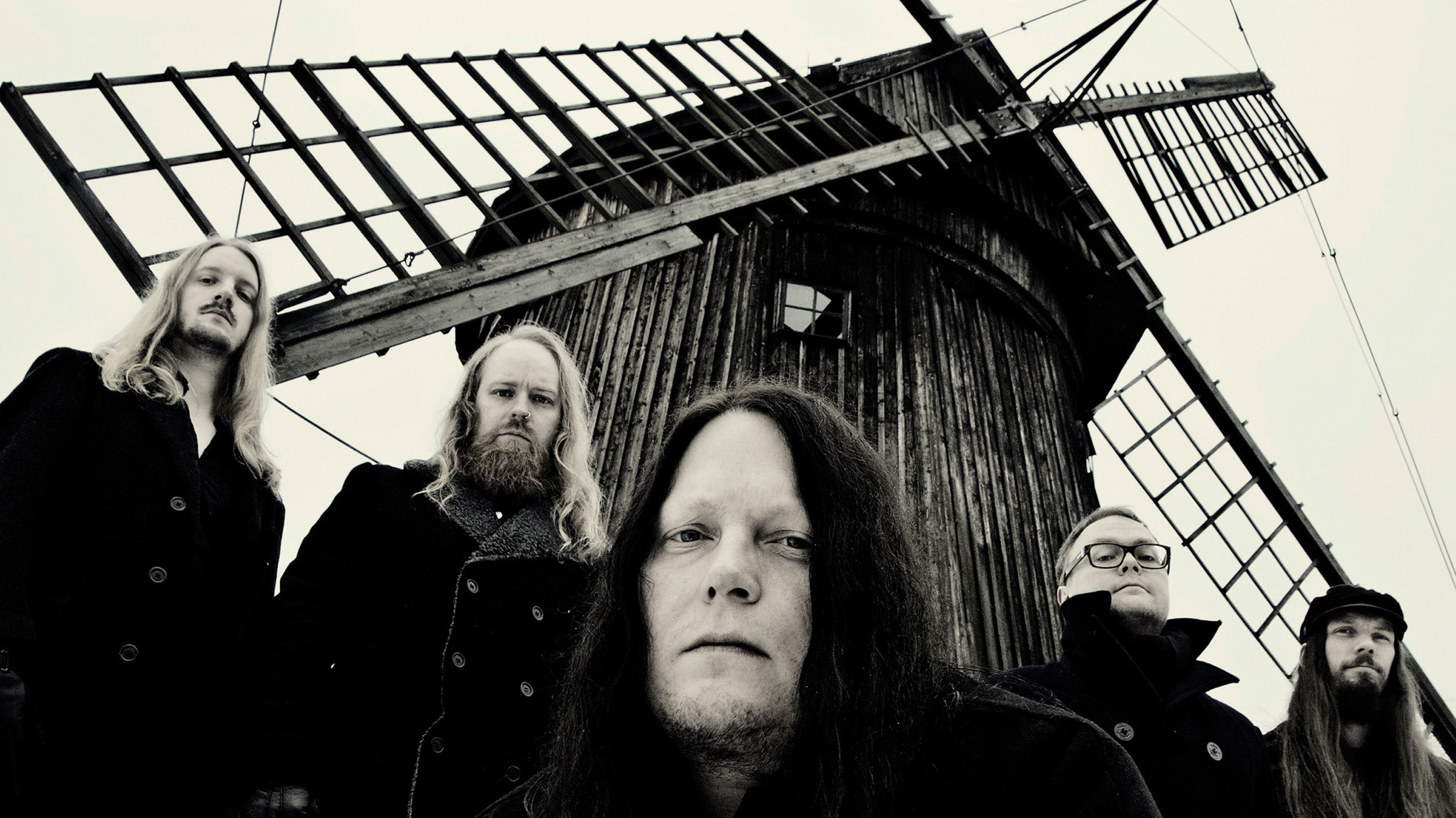
“I remember opening a few doors and finding a room that looked like a cave and had a slaughtered police car in it. There were guards working 24 hours a day, walking through the corridor with dogs. I had a dog at the time, so sometimes I had to bring it with me to the studio; David [Costello] stopped my vocal takes so many times because they were fighting.”
Renkse adds: “The room next door to the studio was a rehearsal room, and some band had a break-in in there. So, to scare away potential burglars, they put the radio on super loud and left it on overnight. It always sounded like there was a party in the other room.”
It’s a testament to Katatonia’s talents that they were able to make something as refined as Dead End Kings in such a shithole. Ten years after its release on August 27, 2012, the album is still the band’s highest charting. It also has the legacy of defining their later output, especially follow-up The Fall Of Hearts, which leant even heavier into prog rock with its twisting time signatures and grand song structures.
“I’m super proud of Dead End Kings,” Renkse enthuses. “I think it’s a quality album; I think it’s sophisticated. When we play those songs live, it feels like they’re part of the more recent stuff that we’ve done, but ten years is a long time. We get a weird feeling every single time we play them. Where has the time gone?”
